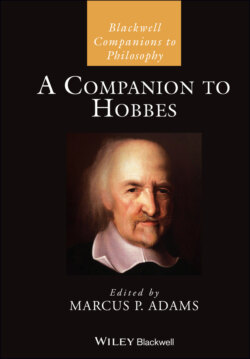Читать книгу A Companion to Hobbes - Группа авторов - Страница 34
2.1.2 Neo-Stoicism
ОглавлениеThe “Neo-Stoical” school, founded by the sixteenth-century Flemish scholar Justus Lipsius, was immensely influential in Hobbes’s day. Lipsius’ many expositions of Stoic ethics and politics, especially De constantia (1584), were widely read and discussed.6 He also composed several more rigorous summaries of Stoic metaphysics and natural philosophy such as Physiologiae Stoicorum (1604). Hobbes himself must have read Lipsius from a relatively young age since he quotes approvingly Lipsius’ “true and proper commendation” from De doctrina civili (1604) in the biographical introduction to Hobbes’s 1629 translation of Thucydides (EW VIII.32). It is possible that Hobbes also read the Physiologiae, whose first book comprises a detailed discussion of God’s relation to the world according to Stoic doctrine. Like Hobbes, Lipsius rejects the pantheistic tendencies in Stoicism: “The Stoics say that God is the world itself, when strictly speaking he is its soul” (1604 I, 8, 16; see also 1604 II, 4, 78). And he also rejects the full corporeality of God (1604 I, 9, 20; see also 1604 II, 4, 75–8). Nevertheless, Lipsius’ thorough scholarship would have provided abundant classical material to inspire and ground a modern materialist theology like Hobbes’s.
Another Stoic doctrine discussed in detail in Lipsius’ De constantia, namely fate, emerges early in one of Hobbes’s most famous controversies, the protracted argument about liberty with Bishop Bramhall. Bramhall draws on distinctions made by Lipsius in his critique of Hobbes’s views as Stoic or hyper-Stoic.7 As usual, Hobbes protests that he has not derived his position “from the authority of any sect, but from the nature of things themselves” (EW IV.260–1; see also EW V.244–5). Bramhall’s final word in the dispute, his 1658 “Castigations” of Hobbes, went unanswered. But the Castigations were published together with Bramhall’s “Catching of Leviathan.” He there again disparagingly saddles Hobbes with the epithet “Stoic”: “If he had not been a professed Christian, but a plain Stoic …” (1842–1844, IV.426).
